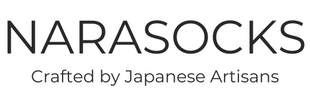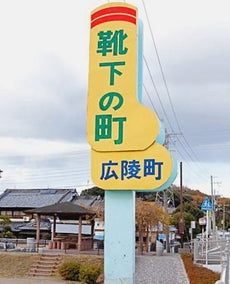Jul 2017 | Lighthouse Los Angeles Magazine

An interview article with a Japanese woman who shines in the United States.
Maarlie Wahddah(Mari Wada),
CEO of a sock brand “Tabbisocks”
My mission is to expand the possibility of individuals and companies globally.
Tabbisocks sells high quality made-in-Nara socks worldwide mainly in North America. Although the company has only four employees, it deals with more than 400 companies including Walmart and Urban Outfitters. We interviewed Maarlie Wada, the CEO of the brand.
Question: What made you move to the US? What were you doing in Japan?
Answer: I was working for trade administration in Japan. My boyfriend that time (then my husband) transferred to Silicon Valley and I visited him. I felt very comfortable and decided to stay longer.
Question: After moving to the US, what did you do until you started Tabbisocks?
Answer: For the first five years, I bought American apparels in the US and sold them at “Yahoo Auction” and “Rakuten Marketplace” and also sold them to wholesalers in Japan. At first, I was handling brands that celebrities wore and were not in Japan yet, but after that, I started selling plus size apparels that were not in Japan online. Small and medium sized apparels were available everywhere but plus size apparels were not, so this was a hit and became a business that generated monthly sales of 10 million yen.
Question: What made you start Tabbisocks? How did you come up with the idea?
Answer: One time I was told by someone who helped me greatly before, “You are just an intermediary who buys and sells apparels. Even if it succeeds to some extent, you can’t make big wealth.” Then she taught me how to make big wealth in the US. These were - 1. “Dig” = natural resources such as hot springs, oil, diamond, etc. 2. “Grow” = agriculture and livestock 3. “Make” = make something your own. #1 and #2 were difficult for me so #3 was the only option. Then I thought about made-in-Japan socks. Socks in the US were not in good quality with the rubber being damaged or torn quickly, and many of them were not good in design either. American people even praised me for my cheap socks that I bought in Japan for 1000 yen for three pairs. Even in the US, where the apparel industry is already mature, I thought there was still room for made-in-Japan socks to enter the industry. That’s why I focused on Nara prefecture, which had the largest production of socks in Japan. I thought it might work if I sold and spread the high quality socks that were made here in Nara to the US.
Question: It became a big business that deals with more than 400 companies now. What was the factor for success?
Answer: Our designs are the lifeline but we didn’t do anything like “We will compete with Japanese pattern socks because it’s made-in-Japan socks.” The reason is that even if the Japanese pattern socks can make a temporary boom, it is difficult to make them a long seller. I think it was a success that we developed designs and patterns for Americans while the quality was high such as “hard to tear” and “good fit.” I also have been careful that the designs are not too fashionable and something that appeals to many Americans because if it’s too fashionable it’s only accepted by some people. For example, heart patterns may be a little out of style in Japan, but they sell well in the US. Also for the past few years, we have been focusing on marketing and contract with about 50 fashion bloggers. We hear opinions on socks from them and reflect them in the product development. The bloggers also wear our socks and post them on Instagram.
Question: What are the advantages and challenges of doing business in the US?
Answer: North America is a huge market and attractive by itself, but also once you start a business in English it’s easy to expand it to other English-speaking countries such as Canada, UK, and Australia. The challenges are that I’m not American and don’t have their point of view, and also I don’t speak English perfectly. But I try not to do everything by myself and make it up by, like I said earlier, asking opinions from the bloggers and also leaving the sales to an American agency. The important thing is not to limit the possibilities of your business with what you can and cannot do. If you have a good idea, you can freely expand it then think about what to do with the missing parts.
Question: What is your future prospect?
Answer: I recently started a new project called “Sock Nation” to reward more for the contract designers who make a hit design. Any designers around the world can participate in the project and 15% commission per sock sold is paid to the designer if the design is selected. I hope that many people expand their possibilities by participating in this project. I would also like to focus on sales support for individuals and companies by sharing our distribution network of more than 400 companies and consulting work for Japanese companies to expand overseas.
*Lighthouse Los Angeles was founded 1989 and is a life information magazine in Los Angeles operated by the local information magazine "Lighthouse".
https://www.us-lighthouse.com
Los Angeles Office
2958 Columbia St., Torrance, CA 90503
Phone:310-782-1260
San Diego Office
3750 Convoy St. #202, San Diego, CA 92111
Phone:858-314-8299
Seattle Office
6100 219th St. SW, #480, Mountlake Terrace, WA 98043 (Temporary address)
Phone:206-624-5777

